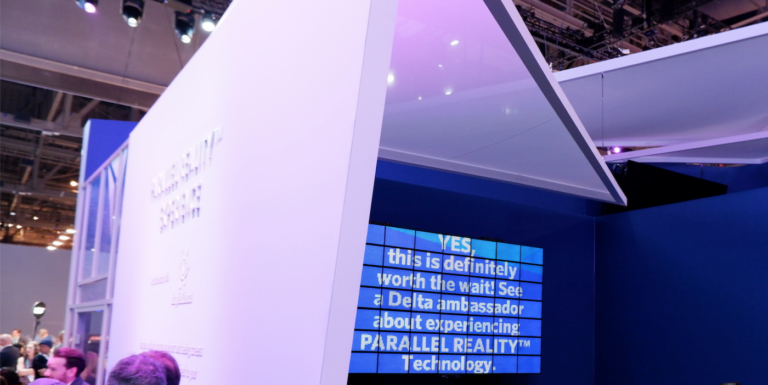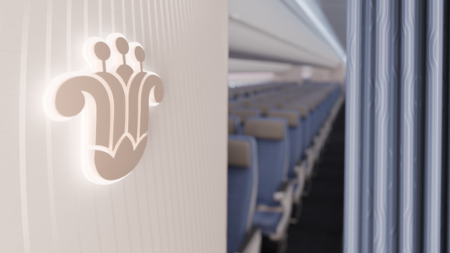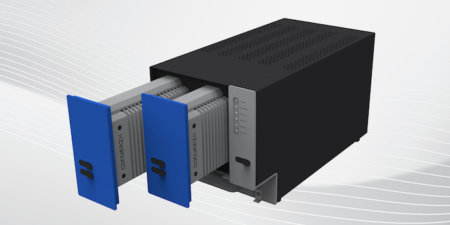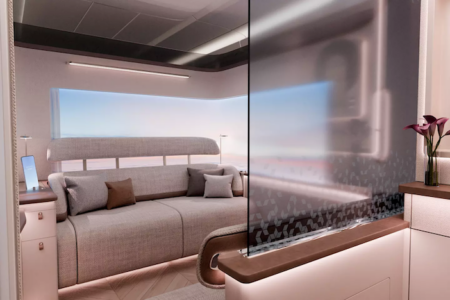Delta CEO Ed Bastian astounded CES during his keynote speech at the opening of CES in Las Vegas by announcing a brand new technology that could completely transform passenger experiences in airports around the world – Parallel Reality.
The screen is capable of not only detecting who is looking at it and tailoring the information it displays to that person accordingly, but also simultaneously detecting multiple other viewers and displaying different information to them at the same time.
Therefore, in an airport environment, one passenger will be able to see only information about their flight on large screens, even at a distance, while another passenger can be looking at the same screen at the same time and see only information about their flight.
“Parallel Reality is being developed right now by a team of talented intrapreneurs at a startup called Misapplied Sciences and Delta has invested funds, time, and our own brainpower into bringing this idea to life in airports and beyond,” Bastain told the packed ballroom at the Venetian hotel.
Joining him onstage, Albert Ng, CEO of Misapplied Sciences explained a bit more: “We have display technologies that work for crowds ranging from tens of people up to thousands of people, all looking at the same display at the same time, and each seeing unique content.”
The technology works by recognising body shapes in front of it, matching these to known passengers checked in and then using advanced processing to change each pixel in a display to project in one direction.
“It is actually one of the most sophisticated display technologies in the world, involving many underlying innovations,” continued Ng. “These innovations range from inventing new processor architectures, to developing new computer vision algorithms, to pioneering new optical manufacturing process. These interdisciplinary innovations create engaging personalised Parallel Reality experiences.”
The first-ever screen to be seen outside the lab is being demonstrated at CES this week (January 7-10) and Delta believes commercial rollout is not far away.
“This is not a technology that’s going to take 20 years to bring it to life,” said Bastain. “We are excited to announce that Delta and Misapplied Sciences’ first-ever commercial application will take place this summer in Detroit. This is a great example of how we are combining Delta’s strength and scale with the innovation of startups to advance the future of travel.”
Bastain used the keynote to highlight a wealth of other innovations that Delta is currently planning, including turning its app into a ‘digital concierge’ that will enable customers to watch in-flight entertainment on their phones as soon as they are checked in; get baggage picked up from their home and delivered to their destination while tracking it in real time; and use biometrics to make the entire airport experience almost seamless.
Bastain also reinforced Delta’s commitment to reducing carbon emissions through measures such as carbon offsetting, biofuels and more efficient aircraft – this final point is currently being enhanced by reducing the weight of seat-back IFE systems by making them completely wireless.





